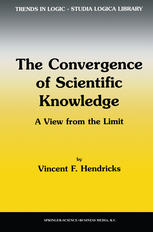

Most ebook files are in PDF format, so you can easily read them using various software such as Foxit Reader or directly on the Google Chrome browser.
Some ebook files are released by publishers in other formats such as .awz, .mobi, .epub, .fb2, etc. You may need to install specific software to read these formats on mobile/PC, such as Calibre.
Please read the tutorial at this link: https://ebookbell.com/faq
We offer FREE conversion to the popular formats you request; however, this may take some time. Therefore, right after payment, please email us, and we will try to provide the service as quickly as possible.
For some exceptional file formats or broken links (if any), please refrain from opening any disputes. Instead, email us first, and we will try to assist within a maximum of 6 hours.
EbookBell Team

4.4
22 reviewsThis is this, this ain't something else, this is this -Robert De Niro, Deerhunter his book may to some extent be viewed as the continuation of my T Doctoral thesis Epistemology, Methodology and Reliability. The dissertation was, first of all, a methodological study of the reliable performance of the AGM-axioms (Alchourr6n, Gardenfors and Makin son) of belief revision. Second of all the dissertation included the first steps toward an epistemology for the limiting convergence of knowledge for scientific inquiry methods of both discovery and assessment. The idea of methodological reliability as a desirable property of a scientific method was introduced to me while I was a visiting Ph. D. -student at the Department of Philosophy, Carnegie Mellon University in Pitts burgh, Pennsylvania, USA in 1995-96. Here I became acquainted with formal learning theory. Learning theory provides a variety of formal tools for investigating a number of important issues within epistemology, methodology and the philosophy of science. Especially with respect to the problem of induc tion, but not exclusively. The Convergence of Scientific Knowledge-a view from the limit utilizes a few concepts from formal learning theory to study problems in modal logic and epistemology. It should be duely noted that this book has virtually nothing to do with formal learning theory or inductive learning problems.